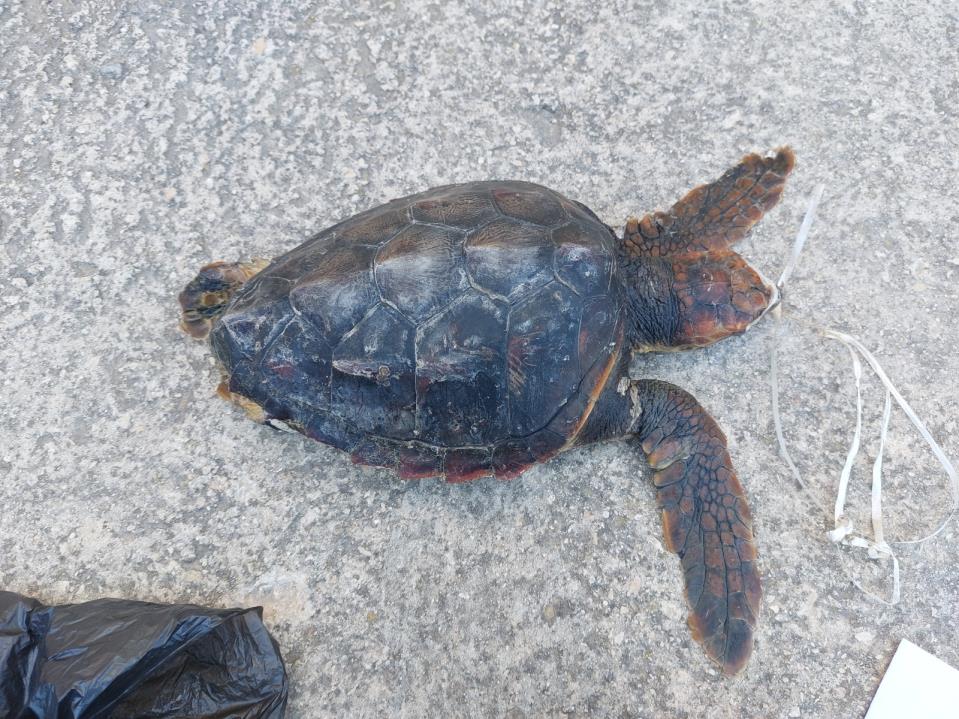A dead carcass of a young turtle has been recovered in Maltese waters by the Armed Forces of Malta, with the turtle having died likely due to the ingestion of balloons.
Nature Trust – FEE Malta announced the sad news in a statement, appealing again to the public to avoid the use of helium balloons, saying that if let off they can eventually have a negative impact on wildlife such as birds and turtles.
“The NGO has been running a campaign for the last 10 years against such balloons. Even biodegradables are as bad and therefore should never be used. Both can be mistaken for food by birds and marine animals once they fall in the sea. Thousands of animals die each year of marine debris,” the NGO said.
The NGO said that the AFM’s Maritime Section on Friday recovered a dead turtle in Maltese waters, and that the early signs are that the cause of death was the ingestion of one such balloon.
“The turtle was a very young 3 year old loggerhead turtle which may have assumed that the balloon was some jellyfish,” Nature Trust said.

The carcass of the dead turtle was picked up by the Wildlife Rescue Unit of Nature Trust Malta and taken to be place into deep freeze for a necropsy by Nature Trust’s veterinarians.
“Loggerhead turtles are today an endangered species around the world. It is therefore sadder to see that this young turtle died because of human irresponsibility thus never making it to becoming an adult and able to breed,” Nature Trust said.
Nature Trust wishes to thank the AFM for their valuable work and also ERA and Lottoland for supporting the Wildlife Rescue in its work and for medications and medical Equipment.
Volunteers for the Nature Trust Wildlife Section have this week started patrolling the sandy beaches at night, for signs of nesting turtles. Anyone seeing turtles on our beaches are kindly requested to report such sightings to the NGO's emergency line 9999 9505. In this way the nest can be protected from predators and other dangers till the young hatch.